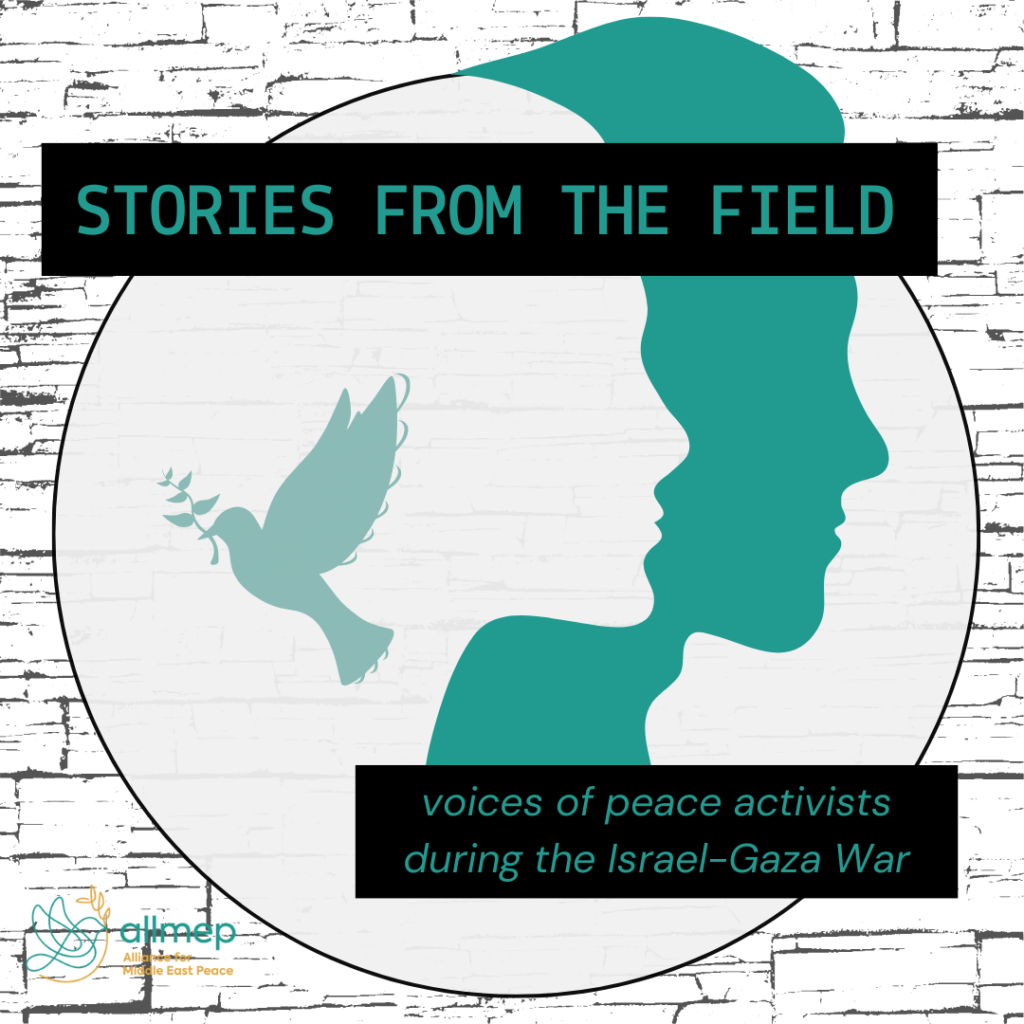

Before everything changed on October 7, Sally Abed’s profile in Israel was already rising as a civil society leader and activist as a member of the national leadership of Standing Together, Israel’s largest Jewish-Palestinian grassroots movement. Abed has been a leader in some ways since she was a girl growing up in Miilya, a small Arab village in the Galilee. It was there she’d stand up against – but also have compassion for – the class bully. Her mother lovingly dubbed her: “The Justice Princess”.
In the weeks before the war broke out, in addition to her work at Standing Together, she was campaigning as head of a new joint Jewish-Arab list to run for municipal elections in Haifa. But the catastrophe of the war has thrust her on a different plane of leadership and consequence, one she finds herself trying to digest.
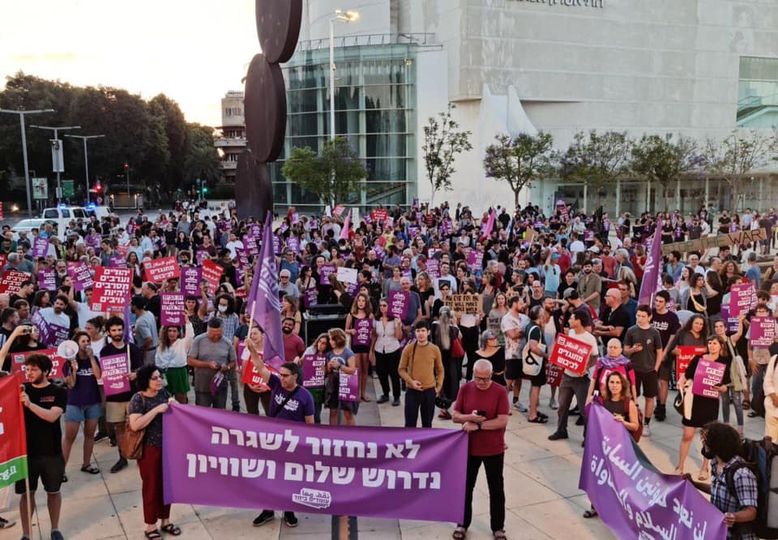
“It’s been weighing on me very heavily, just the realization that we are- that Palestinians in Israel are- the key. And I am part of this new leadership,” she says. “This is the moment. This is the junction and that’s what drives me because this is it,” she says. “Halas,” she says, using the Arabic word for ‘enough’.
If before the war, Standing Together was about building the base for solidarity of Palestinian and Jewish Israelis on shared economic and social justice issues like affordable housing and fighting for full equality for all citizens, and fighting the occupation, after the war the mission has become laser focused on peace itself.
Sally and her colleagues are working to tap Standing Together’s grassroots energy to mobilize Jews and Palestinians in Israel to demand peace as the only and essential lifeline out of endless conflict.
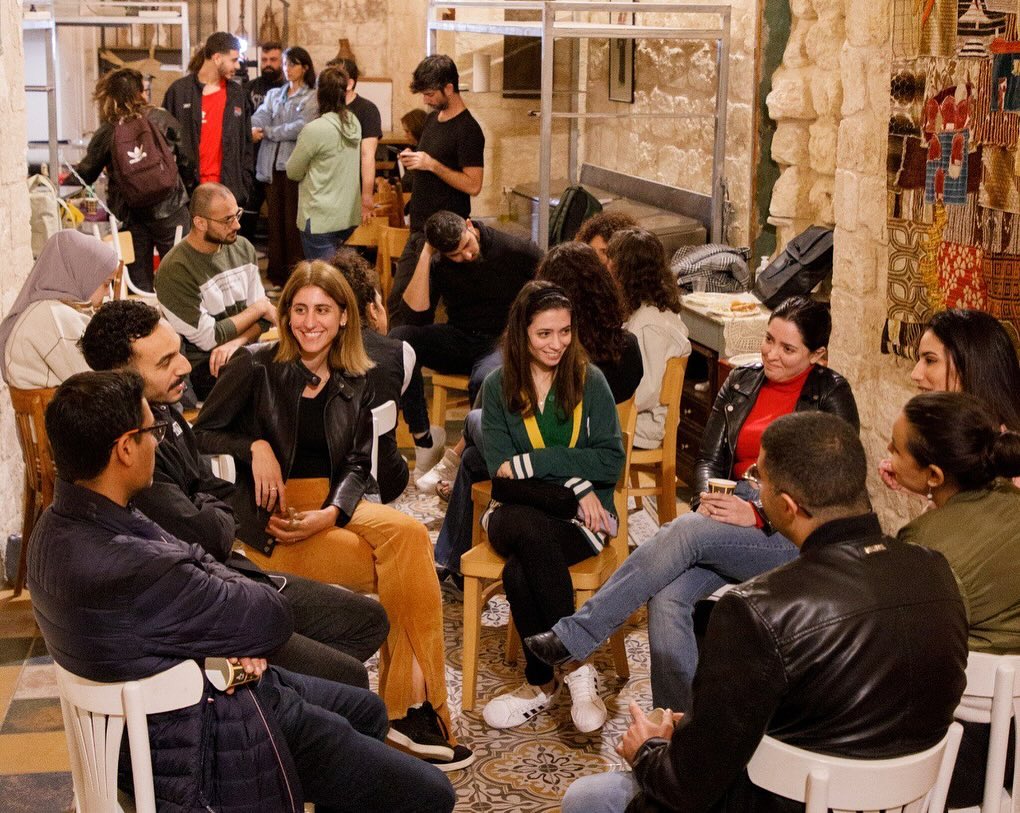
“After October 7, I think everything has changed,” she says, “We really asked ourselves a very difficult question of: do we want to focus on Jewish-Arab partnership and solidarity within Israel? Just amplify the work of the joint, shared society, civil work right now, and just lead that? … Or do we actually want to talk about peace?”
She and her colleagues are trying to share a message that now sounds like a radical message in a polarized world: Jews and Palestinians living on the same stretch of land. Both are here to stay. Both are home and need to find a way to make it a peaceful one.
Sally acknowledges it’s a much more difficult conversation right now, one that is hard to have without sounding naive or disconnected, especially with both Jewish and Palestinian societies in a deep state of ongoing trauma and as war and uncertainty spiral on.
But once you see the current Israeli government is, as she argues, “incapable of offering us security, or any kind of prospects for a sustainable future,” it’s easier to pass on the message that there’s no other way but peace.
“I think peace right now is a very, very radical word. But it’s also the only option. I think in very deep crisis, you also have very deep clarity,” says Sally. Israel itself has been shifting rightwards for years, and the war has only made Hamas more popular among Palestinians in the West Bank and Gaza. She is clear-eyed about that, and knows the battle to win over the majority of both societies will be challenging.
But, Sally sees hope seeping in through Standing Together’s activities on the ground. There are overflow crowds at their Jewish-Arab solidarity rallies throughout the country. But it’s the smaller, more intimate dialogue style gatherings that gives Sally even more hope. She attended one recently where a Jewish Israeli woman in her early twenties confided that it was her first time in a Jewish-Arab shared space, and that her parents, who would not approve of such an event, did not even know she had come that evening. The woman described the transformative impact of being there and looking for a way forward together as partners.
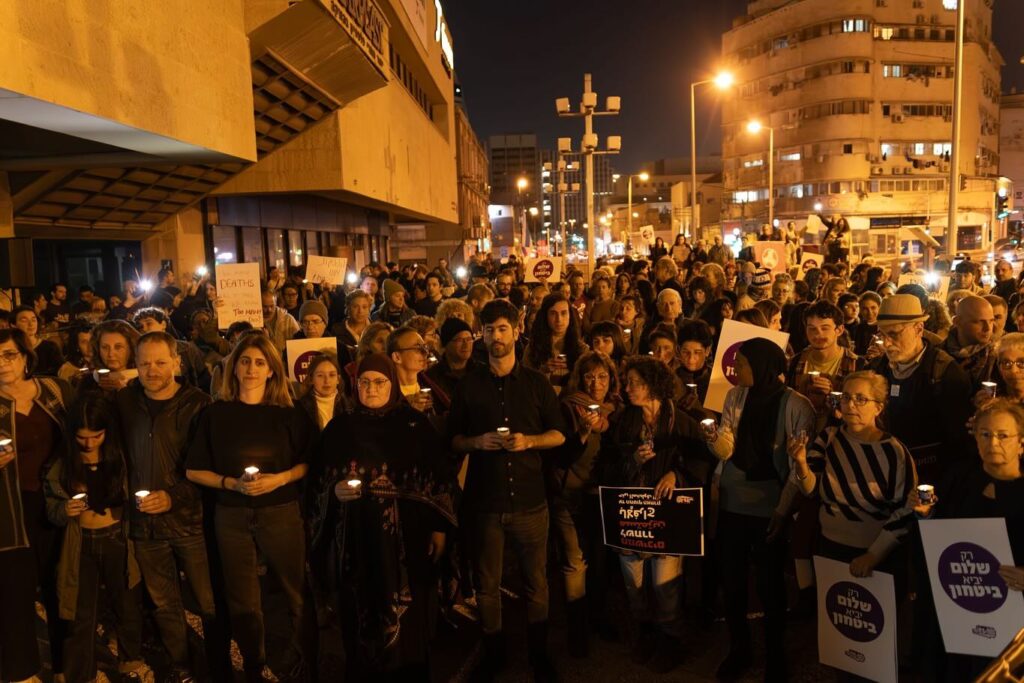
“Obviously, we can’t replicate this to millions of people everywhere in a short period of time. But we will replicate this again, and again…. this paradigm will become more normalized, and more people will shift, once you shift your conception,” Once, she says, “you see the power of that new story.” A story that is focused on finding a peaceful way forward.
Translating that into political power will take time, but that is what Sally is focusing on in her 18-hour days of meetings and organizing: “We draw a lot on the power of social movements and their role into building political capital. Every single deep, historic change that happened in the world happened because of social movements.”
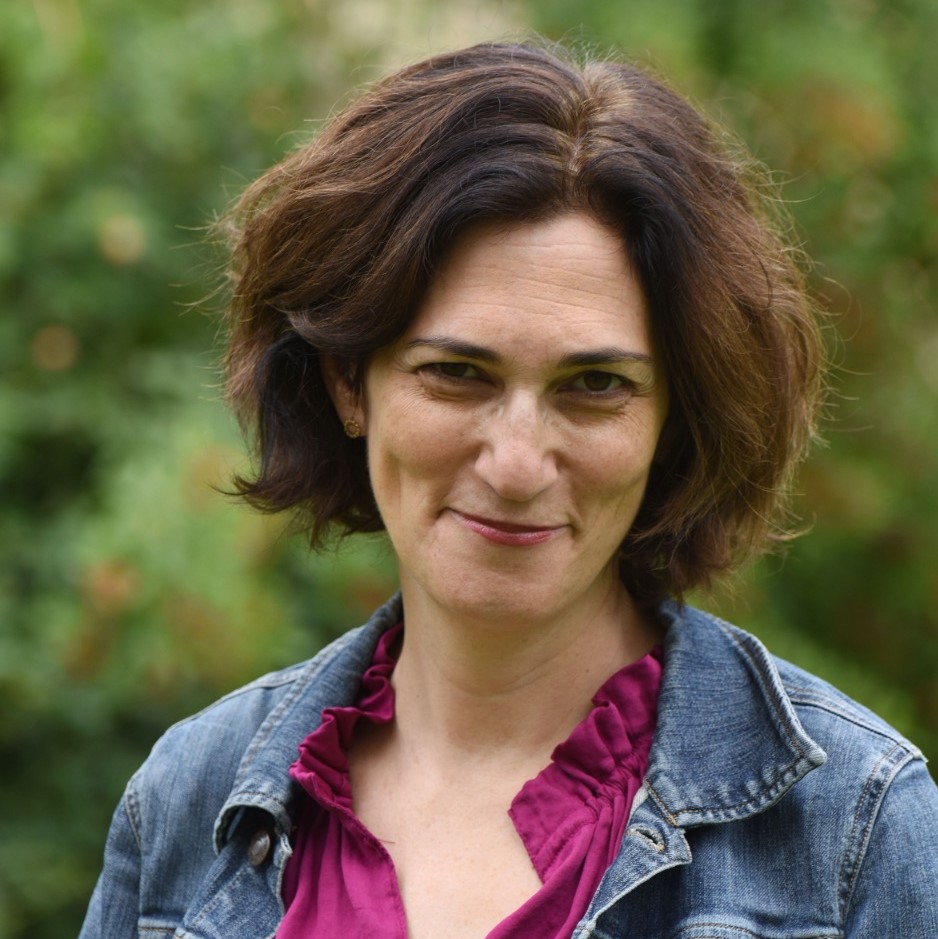
Dina Kraft is a writer and journalist based in Tel Aviv. She is the Opinion Editor for Haaretz English and co-author of My Friend Anne Frank. She has written from the region for over two decades for The New York Times, The Christian Science Monitor and The Los Angeles Times, reporting on Israeli and Palestinian politics, culture and society.
Dina is drawn to stories featuring unlikely connections, dual narratives and the impact of conflict and crisis on ordinary lives. She hosts the podcast “Groundwork” and previously “The Branch”, which tell the stories of relationships between Jews and Arabs, Israelis and Palestinians.
Dina is a long-time foreign correspondent who began her overseas career in the Jerusalem bureau of The Associated Press. She was later posted to AP’s Johannesburg bureau where she covered southern Africa. She’s also reported from Senegal, Kenya, Pakistan, Jordan, Tunisia, Russia, and Ukraine